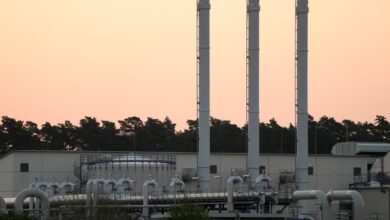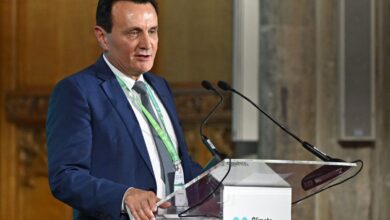Inflation soars to highest rate in four decades as cost of living crisis bites

Britain‘s rate of inflation has surged to a new 40-year high, heaping more pressure on households struggling with the cost of living crisis.
The Consumer Prices Index (CPI) rose to 10.1 per cent in the 12 months to July, up from 9.4 per cent in June and remaining at the highest level since 1982, the Office for National Statistics (ONS) said.
July’s inflation rate is higher than the 9.8 per cent figure expected by most economists and represents a further squeeze on people’s pockets.
Inflation is expected to peak later this year at 13.3 per cent and will push the UK into a recession, according to the Bank of England (BoE).
After CPI inflation was shown to reach 10.1 per cent in July, ONS chief economist Grant Fitzner said a wide range of price rises such as dairy and meat products drove inflation up this month.
“Price rises in other staple items, such as pet food, toilet rolls, toothbrushes and deodorants also pushed up inflation in July,” Mr Fitzner said.
“Driven by higher demand, the price for package holidays rose, after falling at the same time last year, while air fares also increased.
“The cost of both raw materials and goods leaving factories continued to rise, driven by the price of metals and food respectively.”
The rise will come as the energy price cap – which regulates what more than 20 million households pay for their gas and electricity – rises in October. The cap is set to hit around £3,635 according to the latest predictions. It is an 84 per cent rise from today’s already record high price cap.
Samuel Tombs, chief UK economist at Pantheon Macroeconomics, said that motor fuel prices rose by 3 per cent month-on-month in July, which will help push up inflation.
Experts think, however, that the measure could dip in August before soaring again in September and October.
“Looking ahead, CPI inflation probably eased in August largely due to a 7 per cent or so month-to-month fall in motor fuel prices,” Mr Tombs said.
He added that retailers are expected to slow the pace of their price rises soon.
He added: “But the relief for households will be short-lived, due to the impending 80 per cent or so jump in Ofgem’s price cap. This could push up inflation by nearly four percentage points in October.”
Chris Page, who chairs pressure group Railfuture, said: “The government claims that the fare rise will be below inflation, but the devil will be in the detail.
“They won’t say what the increase will be, or which fares it will apply to.
“If the government was serious about tackling the cost-of-living crisis it would make rail travel much more affordable and make it easier for people to use cars and planes less.”
Economist David Blanchflower, an external member of the BoE’s interest rate-setting Monetary Policy Committee from June 2006 to June 2009, said the public were “going to need” greater government assistance.
He told the BBC: “What happened in 2008, what happened in 2020 (is) basically the Treasury stepped in and started to help people in a variety of ways, through the health service, through childcare, through all kinds of things. And that’s what we’re going to need.”





